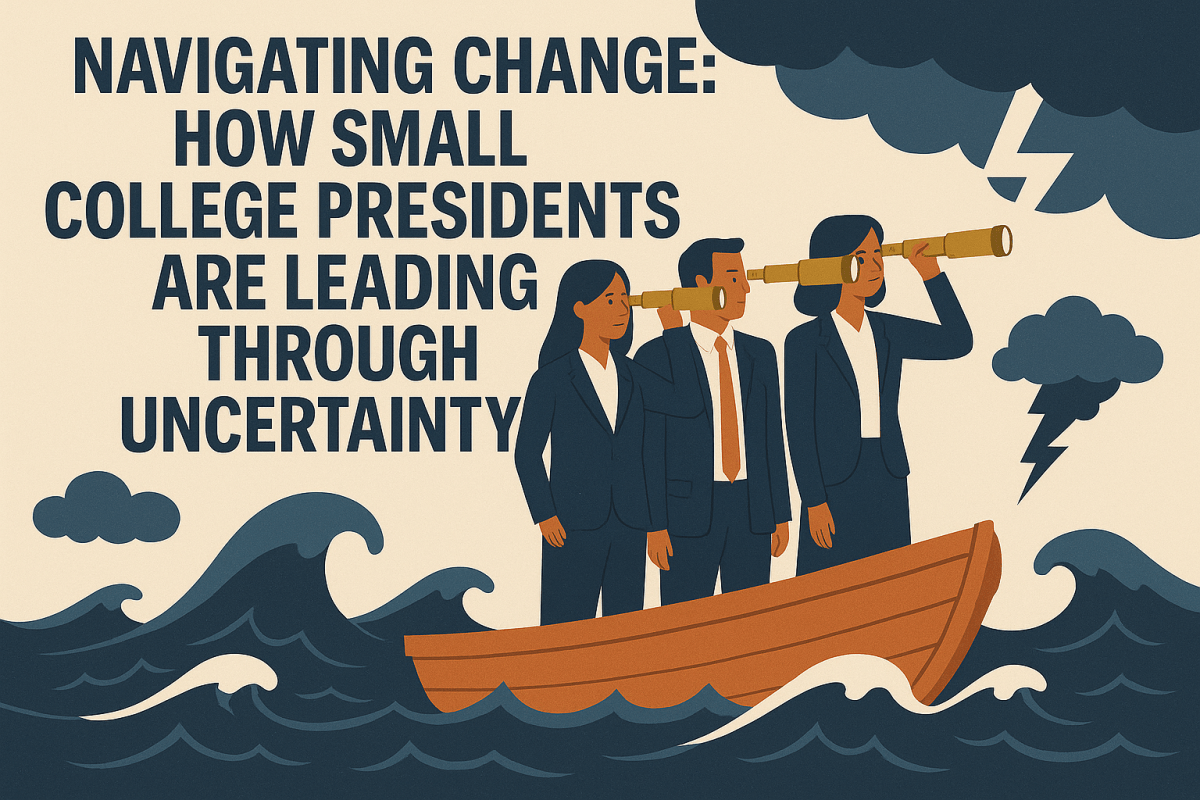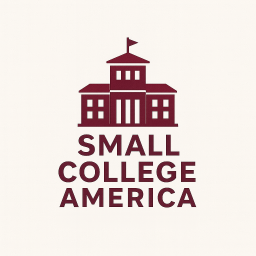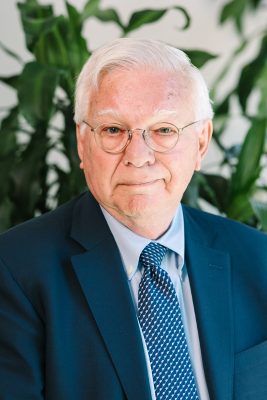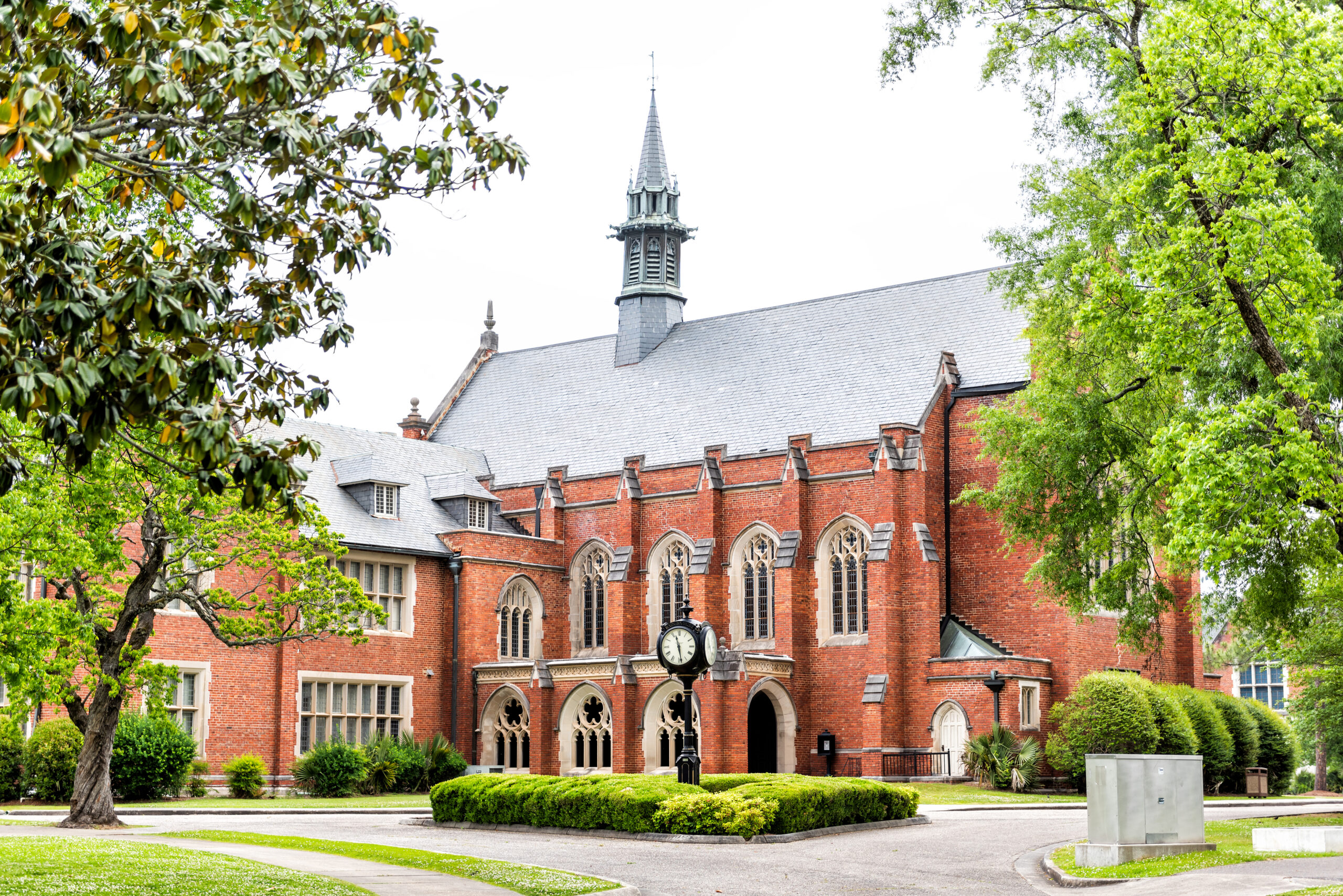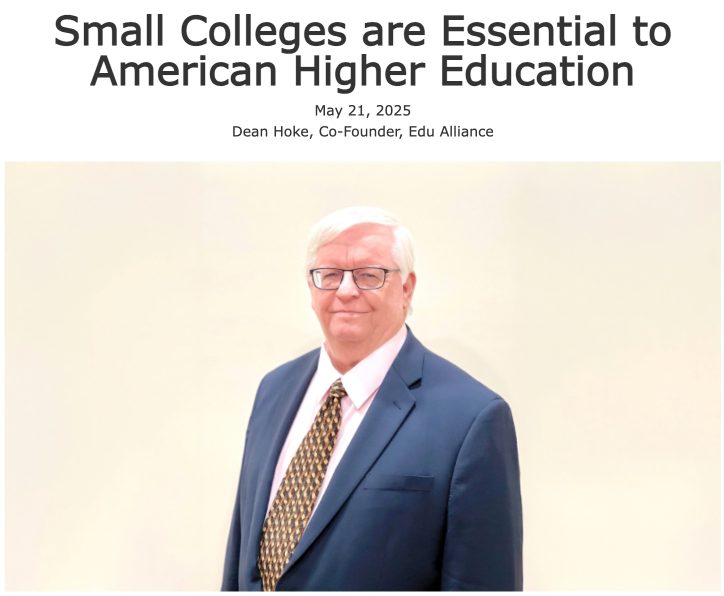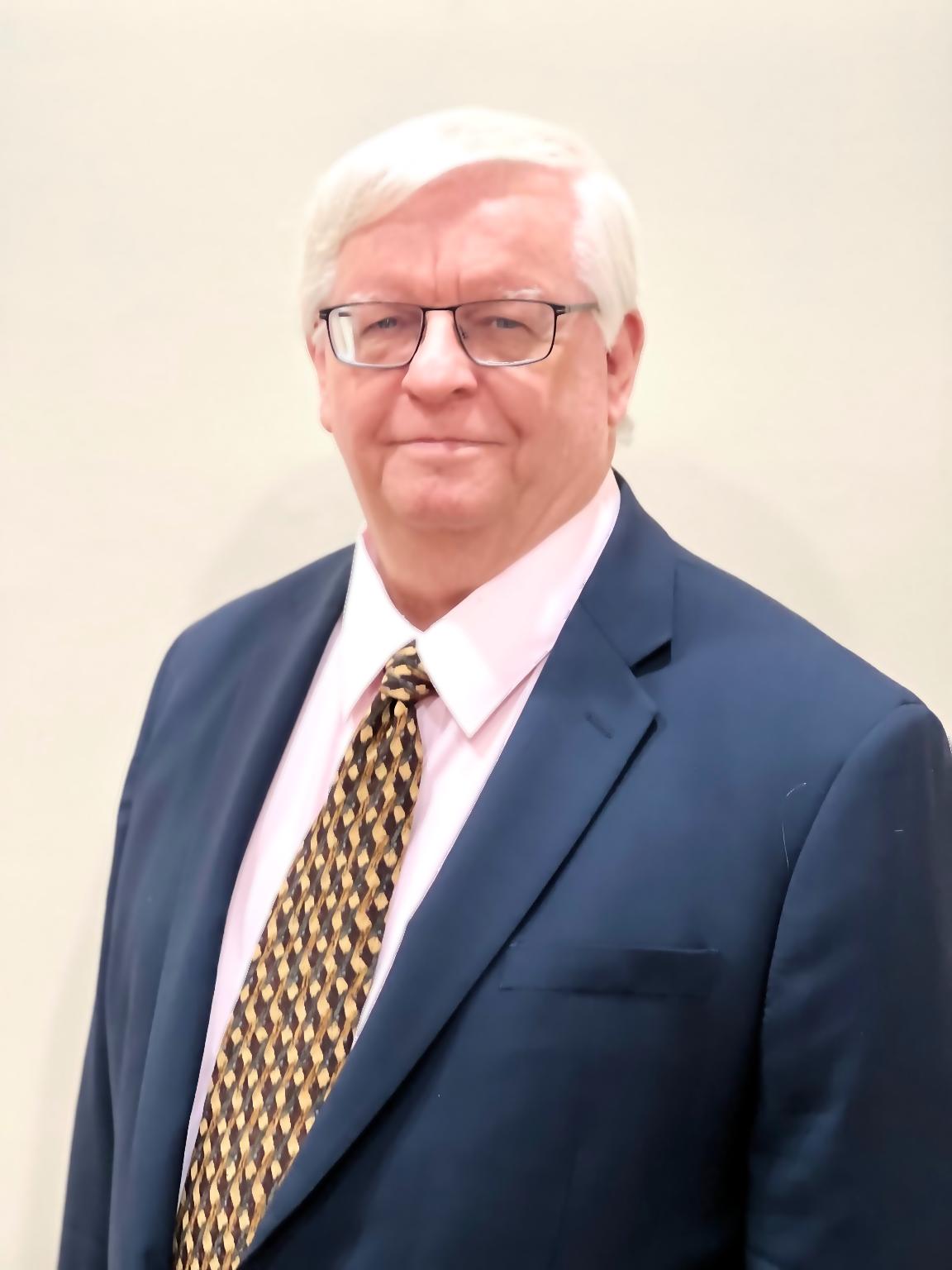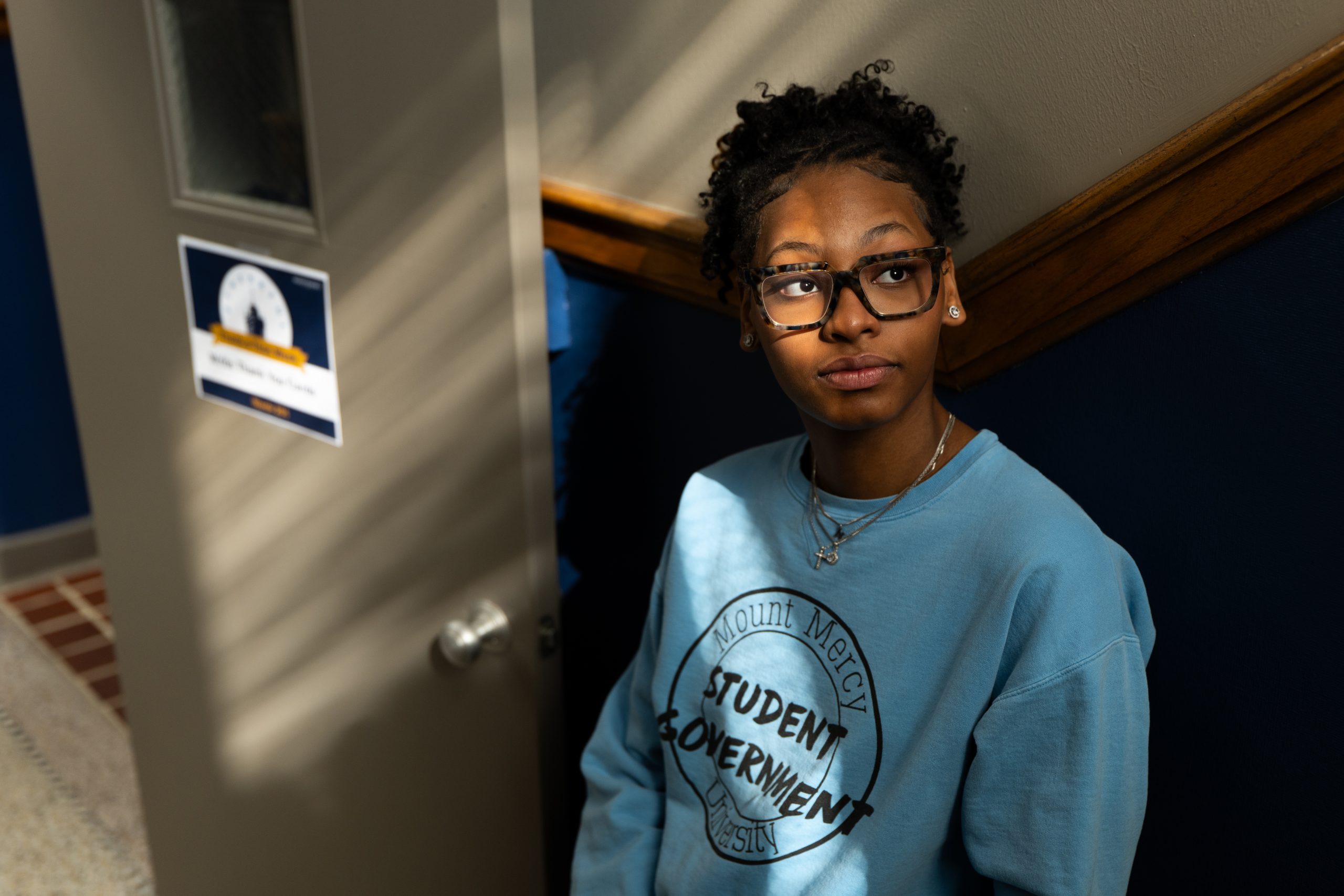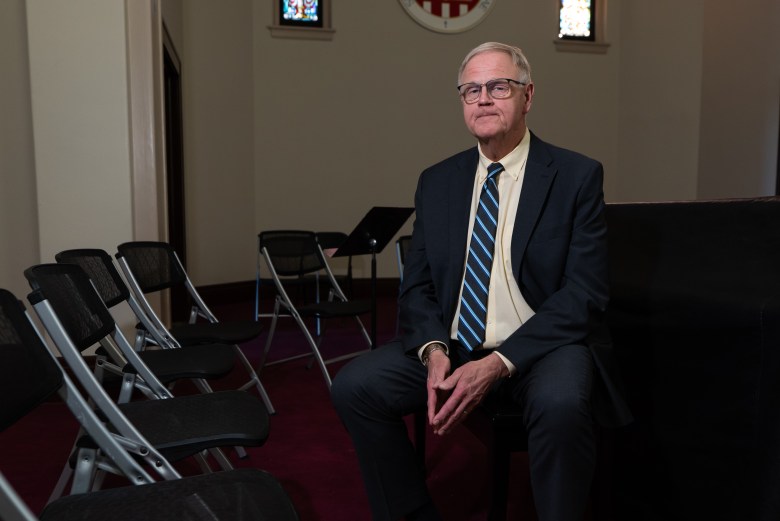Insights from three post-COVID presidents on enrollment, financial sustainability, and strategic innovation
September 3, 2025, by Dean Hoke: Small colleges across America face an unprecedented convergence of challenges—demographic shifts, federal policy changes, evolving student expectations, and the lingering effects of COVID-19. In an August 27th Small College America webinar hosted by Dean Hoke and Kent Barnds, three presidents shared how they are navigating these pressures with fresh strategies and resilient leadership: Dr. Anita Gustafson of Presbyterian College, Dr. Andrea Talentino of Augustana College, and Dr. Tarek Sobh of Lawrence Technological University.
Their conversation revealed that while the obstacles are significant, thoughtful leadership and adaptive strategies can position small colleges to not just survive but thrive.
The Enrollment and Financial Sustainability Imperative
Finding Opportunity in Transfers
For Presbyterian College, located in growing South Carolina, President Gustafson has found opportunity amid challenge. “About 60% of our students come from South Carolina, and the state is growing, which helps us,” she noted. However, rather than relying solely on traditional recruitment, the college has pivoted to focus on transfer students—a population they hadn’t previously targeted.
This strategic shift required significant cultural change. “We have very robust general education requirements, and we are working with our faculty to be more transfer-friendly,” Gustafson explained. The result has been a notable enrollment bump, demonstrating how institutional flexibility can open new pathways to growth.
The Four R’s Framework
At Augustana College in Illinois—a state that isn’t growing—President Talentino has developed what she calls the “four R’s” approach: recruitment, retention, revenue, and results. This framework drives their strategic planning and helps the entire campus community understand how their work connects to institutional sustainability.
“We budget actually 11 years out,” Talentino shared, acknowledging that “it’s a little bit like the weather—once you get past day three or four, it could rain when it’s supposed to be sunny.” This long-term perspective allows the college to anticipate challenges and make gradual adjustments rather than reactive cuts.
Both presidents emphasize conservative budgeting practices. As Gustafson put it: “When we build our budget, we build it on conservative numbers so that we’re not trying to overextend our budget. I think that’s really key to sustainability—making sure you’re being realistic.”
Confronting Federal Policy and International Student Challenges
The STEM Advantage and Vulnerability
Lawrence Technological University’s focus on STEM education has provided both advantages and vulnerabilities in the current environment. President Sobh noted that domestic demand for technologically trained professionals has driven significant interest in their programs. “Our programming, given the surge and the need for technological education, has been serving us well from a domestic growth point of view,” he explained.
However, like many engineering-focused institutions, Lawrence Tech has experienced a decline in international student enrollment. Sobh emphasized that this challenge extends beyond individual institutions: “The same statement would probably be true of every single one of the universities in the country that is home to a college of engineering.”
International Student Success Stories
Despite broader challenges, Augustana College achieved remarkable success with international student recruitment. President Talentino reported that they expect to bring in close to 85% of their original international student goal, “probably one of the few places in the country where we’re going to come that close.”
This success resulted from intensive, hands-on communication and their focus on undergraduate rather than graduate international students, who faced fewer visa complications. About 20% of Augustana’s student body consists of international students, making this achievement particularly significant for their financial sustainability.
Managing Financial Aid Changes
The recent changes to federal financial aid programs have created additional complexity. Talentino noted that Augustana has some protection through a generous alumnus who funds a program meeting 100% of the needs of high-achieving, high-need students. However, she acknowledged ongoing challenges: “There’s a lot of folks in the middle where parent loans are being squeezed and caps on borrowing are being squeezed.”
Strategic Technology Investment and AI Integration
The Liberal Arts Approach to AI
President Gustafson acknowledged the challenge of staying current with AI developments at a liberal arts institution. Presbyterian College has taken a pragmatic approach, partnering with external agencies for micro-credentialing programs that will eventually extend to alumni.
“Our graduates need to understand AI. They need to know how to use it in order to be competitive in the job market,” Gustafson emphasized. The college has also established a technology committee with campus-wide representation to develop long-term budgeting strategies for technology infrastructure.
AI as an Institutional Efficiency Tool
At Lawrence Tech, President Sobh described AI integration as both natural and transformative. Beyond curriculum integration, the university has embraced AI for business processes. “Our marketing, branding, and public relations departments are using AI for the development of marketing campaigns, which is 100 times more efficient, faster, cheaper, and more productive than not using AI,” he noted.
This efficiency extends across departments, from budget management to communications, though Sobh acknowledged that implementation remains “work in progress” for non-academic staff who need training and support.
Evolving Student Experience and Support
Becoming “Student Ready”
President Talentino introduced the concept of institutions becoming “student ready” rather than expecting students to be “college ready.” This perspective shift has driven comprehensive changes at Augustana, from streamlining onboarding processes to reconsidering when and how students want to engage with services.
“We can’t take things that we used to take for granted,” Talentino observed, noting that students today have different expectations and needs than previous generations. The college has revamped peer mentor programs, developed success teams for every student, and created specialized support centers like their new STEM center.
Supporting First-Generation Students
Presbyterian College’s focus on first-generation students—about one-third of its population—has led to innovative programming. Their “PresbyFirst Plus” program brings first-gen students to campus two days early and has earned recognition as a “first-gen forward network champion.”
This targeted support reflects broader changes in student demographics. As Gustafson noted: “Students of today don’t have the reading skills and the math skills that previous generations have had.” This reality has required faculty to adapt their approaches, sometimes focusing on foundational skills before advancing to advanced content.
Bold Strategic Moves
Creating New Academic Pathways
Lawrence Tech’s establishment of a fifth college—the College of Health Sciences—represents a significant strategic pivot for the 95-year-old institution. “It was quite a bold move to establish a new college 50 years or so after the last one had been established,” President Sobh noted.
This expansion into health sciences aligns with the growing demand for technologically trained healthcare professionals. The college now offers programs in nursing, physician assistant studies, and cardiovascular perfusion, and more programs are planned.
Community Development as Institutional Strategy
Perhaps the most innovative approach comes from Augustana College’s creation of a community development corporation (CDC). President Talentino explained that the condition of the surrounding neighborhood had become a recruiting challenge, with prospective students and families expressing concerns about the area.
Rather than simply hoping for external improvement, Augustana committed to an active partnership with the city of Rock Island. The CDC purchases and renovates properties to create mixed-use developments with retail on the first floor and housing above. “We really committed to putting our money where our mouth is,” Talentino said.
This initiative aligns with Lutheran principles of service to neighbor while addressing a practical institutional need. The city has become an enthusiastic partner, and the project has energized both campus and community.
Leadership Principles for Uncertain Times
Transparency and Partnership
President Gustafson’s leadership philosophy centers on transparency and symbiotic relationships. Her first-year theme, “Symbiosis—stronger together,” emphasized that the academic community functions best when operating collaboratively rather than in silos.
Her second-year pivot to “don’t panic, navigate”—borrowed from the National Association of Independent Colleges and Universities—has helped the leadership team manage multiple simultaneous challenges. This approach emphasizes thoughtful response over reactive decision-making.
Cultural Understanding and Patience
President Sobh, who transitioned from provost to president at the same institution, emphasized the importance of cultural understanding. Despite the temptation to implement changes quickly, he spent his first semester meeting with every colleague on campus—”literally hundreds” of people—to understand institutional culture and aspirations.
“The tendency of leaders to effect changes immediately is, in my opinion, the wrong decision,” Sobh reflected. “Waiting and listening to the culture of the institution, understanding the aspiration and history, and how my own interests can be integrated into that vision is absolutely worthwhile.”
Institutional vs. Individual Focus
President Talentino identified a key leadership challenge: helping people understand institutional needs beyond their individual or departmental perspectives. She noted that this represents one of her biggest adjustments from faculty and provost roles to the presidency.
“Focus on self and focus on own department rather than institutional-wide awareness was a little bit of a surprise to me,” she admitted, “but I guess that’s what makes it challenging and never boring.”
The Value Proposition Message
All three presidents emphasized the importance of clearly articulating their institutions’ value propositions to various constituencies. President Sobh stressed the power of concrete outcomes: “Being able to say 97% of my students continue on and are employed at this level and they are guaranteed a job and 85% live locally—that’s an incredibly powerful statement.”
President Gustafson focused on framing liberal arts education in terms of workforce development and democratic leadership: “All of us are important contributors to workforce development. If we can shape our message around workforce development, economic development, and providing leaders for a democratic society, that’s very helpful.”
Looking Forward
These three presidents demonstrate that successful leadership during uncertain times requires a combination of strategic thinking, cultural sensitivity, and adaptive capacity. Their approaches vary based on institutional type and regional context, but common themes emerge: the importance of transparency, the need for long-term planning with short-term flexibility, and the value of viewing challenges as opportunities for innovation.
As small colleges continue to navigate demographic shifts, policy changes, and evolving student needs, these leadership insights offer practical guidance for presidents, boards, and stakeholders committed to the distinctive mission of small college education.
The conversation reveals that while the challenges facing small colleges are significant, innovative leadership and strategic adaptation can position these institutions not just to survive, but to thrive in serving their communities and students.
The complete webinar is available on the Small College America YouTube Channel at https://youtu.be/ya1FBu9eS5Q, and the audio podcast can be accessed at https://smallcollegeamerica.transistor.fm/19
Small College America is a podcast series that presents critical discussions at the forefront by interviewing small college higher education leaders, policy experts, and innovators. The podcast will delve into the evolving role of small colleges, their economic impact, innovative strategies for sustainability, and how they can continue to provide a highly personalized educational experience. The series is co-hosted by Dean Hoke and Kent Barnds.

